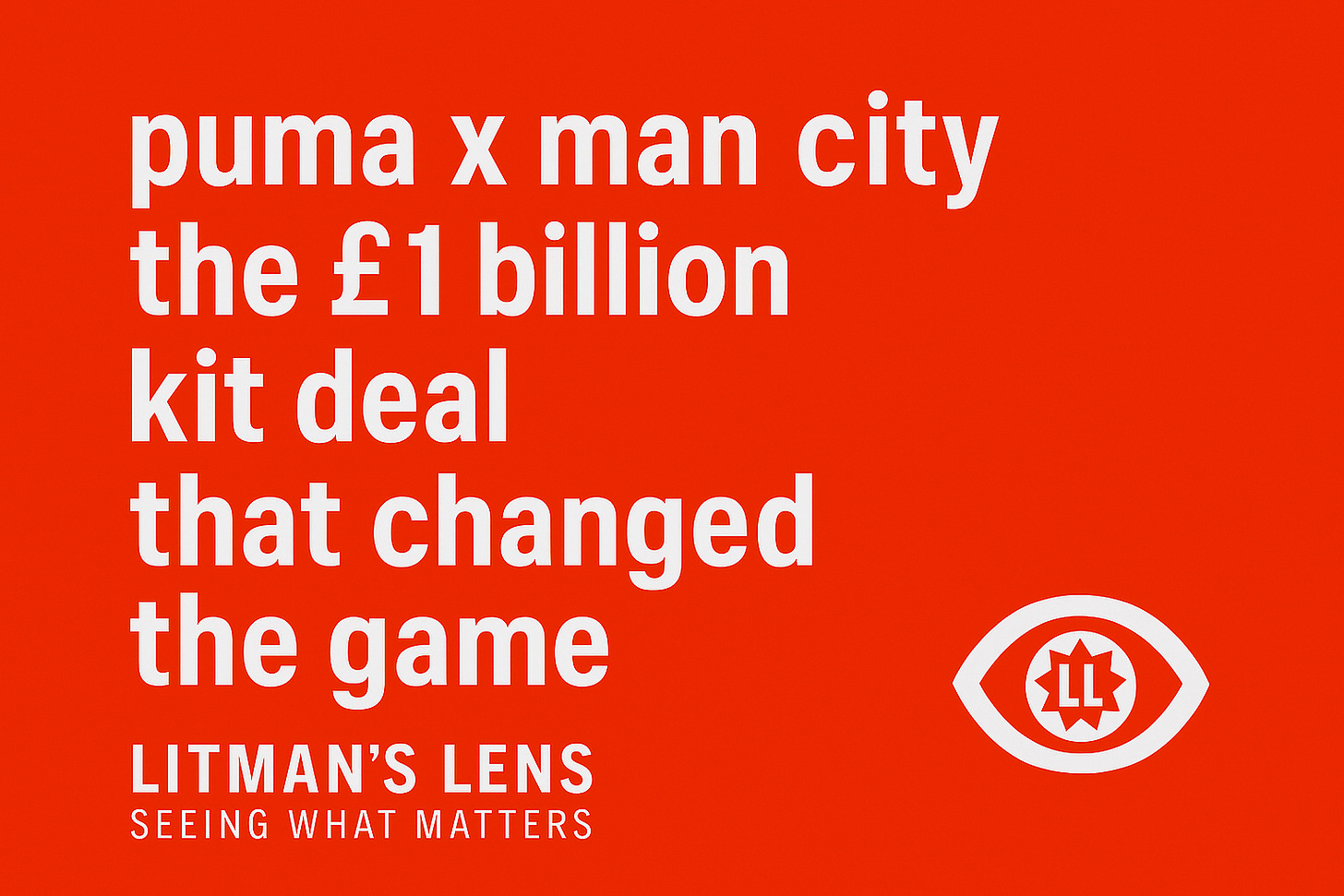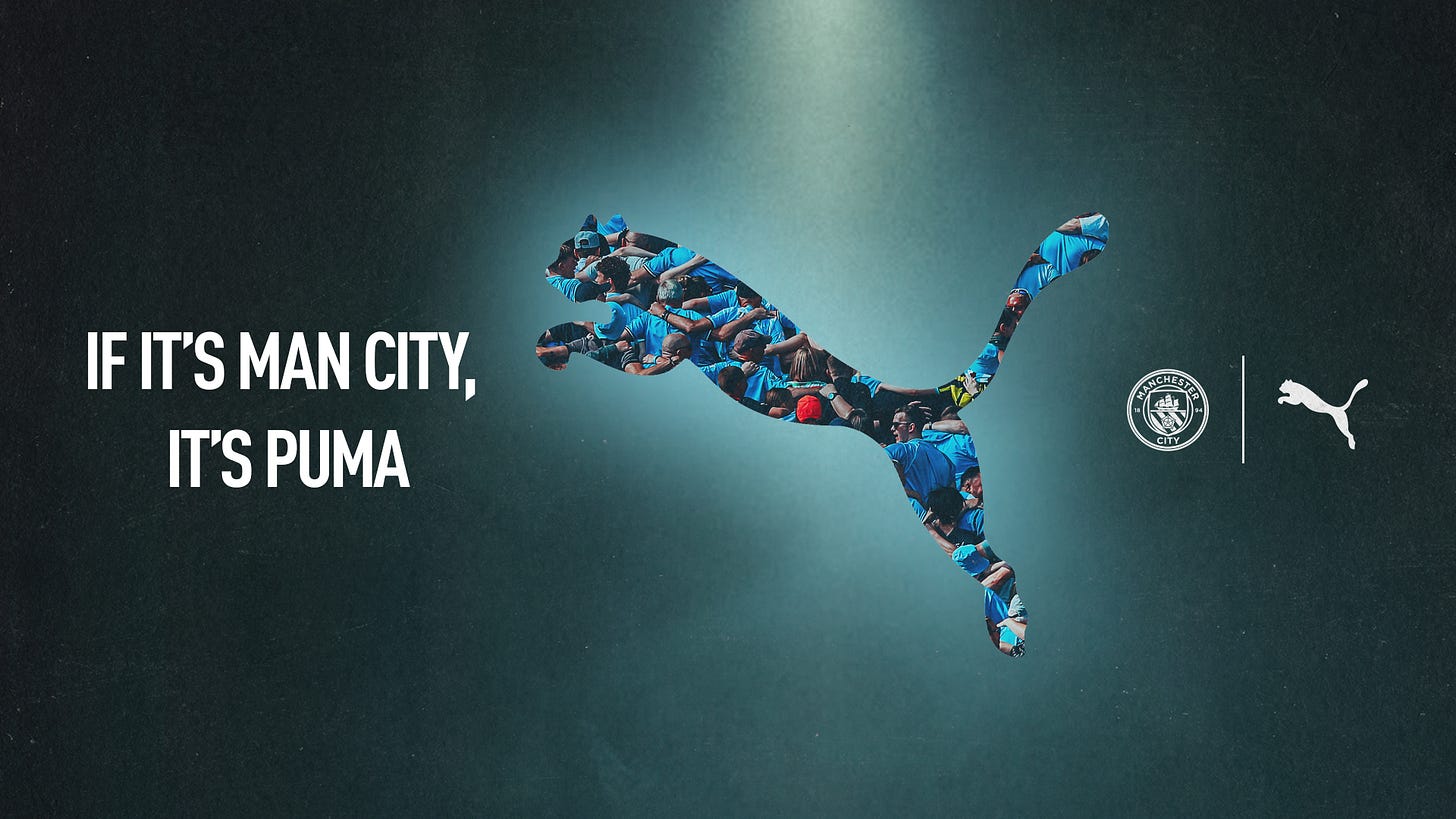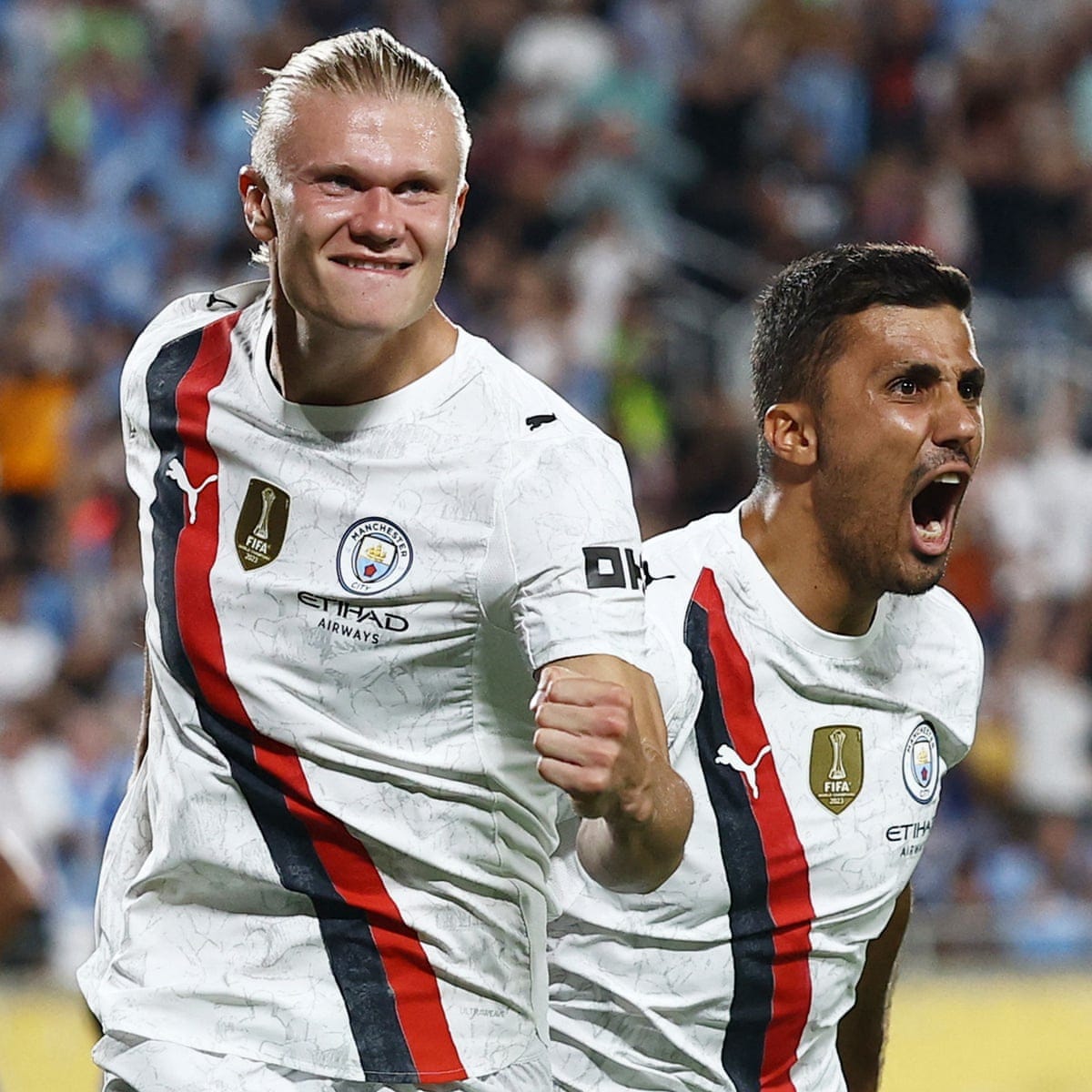puma x man city: the £1 billion kit deal that changed the game
what football’s biggest brand partnership really signals
Football is full of record-breaking deals. But this one feels different.
Manchester City’s £1 billion deal with Puma isn’t just the biggest in Premier League history - it’s a statement of intent. A cultural alliance. A geopolitical hedge. And maybe even a strategic distraction.
Because if you’re a club facing 115 charges for breaching financial rules, there are two ways to respond: lawyer up and level up your commercial game so convincingly that people start questioning the charges instead of your dominance.
this isn’t just a kit deal
On paper, it’s a £100 million-a-year contract, locking Puma into the City Football Group for the next decade. But under the surface, it’s much more. It spans merchandising, women’s and youth teams, and global extensions across CFG clubs in Spain, Australia, India, and the US.
This is about global distribution, cultural adjacency, and owning a share of whatever football becomes next.
City haven’t just built a team, they’ve built a fully integrated media and lifestyle ecosystem. And Puma wants in.
From lifestyle drops to retro collabs, City’s kits perform on the street as much as they do on the pitch. Their third kit alone - a 90s-inspired design dropped by Puma last season, sold out in hours, becoming a staple on TikTok and in Berlin cafés.
This isn’t just sportswear, it’s socialwear too.
As Puma’s CEO Arthur Hoeld put it:
“Trophies are a perfect stage for our performance products, and commercial success were exceptional.”
And he’s not wrong. Since 2019, the partnership has included a Treble-winning season, four consecutive Premier League titles, domestic cups for the men’s and women’s teams, and youth squad dominance. City didn’t just give Puma visibility, they gave them a dynasty.
a billion pound vote of confidence
The timing is no coincidence. City are still under investigation for one of the most significant alleged financial misconduct cases in football history. Puma could have waited for a verdict. Instead, they doubled down - making a £1 billion declaration that says: we think they’ll be just fine.
That’s a powerful form of brand positioning. Because this deal isn’t just about visibility. It’s about belief. It’s a bet that City will remain dominant, unpunished, and culturally relevant, whatever happens.
As one Redditor put it:
“Puma just spent a billion to say: We trust Pep more than the Premier League.”
And internally, the confidence is clear.
City CEO Ferran Soriano said:
“We joined forces with PUMA with the ambition to challenge ourselves and go beyond the expectations. We have achieved this and more over the last six seasons.”
power play, not just brand play
For Puma, this is an aggressive strategic move to challenge the Adidas–Nike duopoly. But it’s also a soft power alignment.
City’s ownership, backed by Abu Dhabi’s royal family, has long used sport as a vehicle for global legitimacy. Partnering with Puma, a German brand, brings a layer of European polish to that strategy. The optics matter.
The commercial footprint backs it up. Together, City and Puma have launched kits in the metaverse with Roblox, invited fans to co-design future kits using AI, and rolled out new City Stores in Manchester Arndale, Yas Mall in Abu Dhabi, and a four-month pop-up at Rockefeller Center in New York. This isn’t just a brand partnership, it’s global retail choreography.
It may also be a hedge on the future of football itself. As clubs push toward direct-to-fan models and expand globally, Puma is buying into the infrastructure of football’s next format, not just its current form.
what this deal really means
This deal redefines what a kit partnership can be. Puma isn’t buying fabric, it’s buying access to audience, infrastructure, and brand IP. They’re embedding in the day-to-day culture of a club that produces viral content, dominates leagues, and influences taste far beyond the pitch.
In an age where footballers are creators, clubs are publishers, and kits are social assets, Puma’s move marks a new blueprint for sport–brand alliances.
And for Manchester City, it’s a signal: whatever you think of the 115 charges, we’ve already moved on.
City didn’t just sell kit space - they sold cultural bandwidth.
what this signals
Football sponsorship is now power branding. Clubs are platforms. Partnerships are geopolitical. And Puma just bought itself a front-row seat to the most compelling and controversial team of the modern era.
This isn’t just a commercial alliance. It’s a case study in how sport, culture, capital, and narrative now move as one.
Even the materials tell a story: since 2024, all City replica shirts are made using RE:FIBRE - Puma’s recycling innovation that repurposes factory off-cuts and pre-loved clothing. Sustainability even is now a shared brand language.
👁️ see what matters
subscribe to Litman’s Lens for more cultural signals in sport, tech, fashion, and brand strategy





